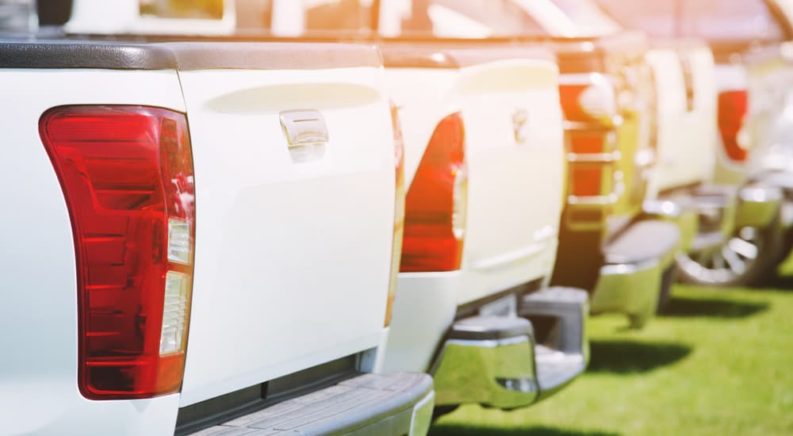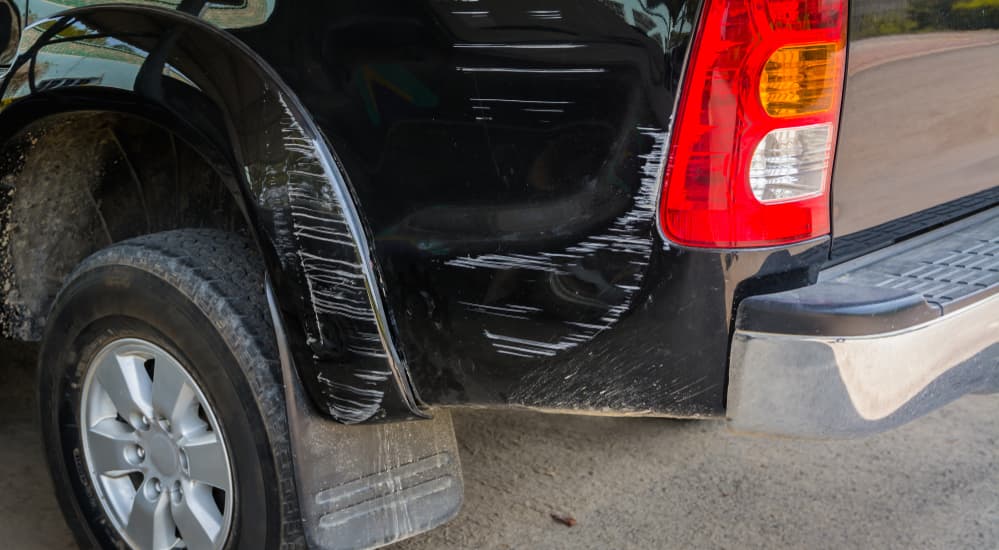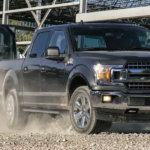Figure Out These Basics in Advance
The used car market has no shortage of used trucks for sale are available for purchase. Making a decision can be really overwhelming if you don’t take the time to decide on a few key things before you shop.
Trucks from different decades have unique features and strengths that may be appealing to your specific needs. It’s a good idea to go into the dealership with an idea of what you’re looking for. Let form follow function as you determine why you need to buy a truck in the first place. Will the truck be used for short trips and light loads or heavy hauling across rough terrain? Thinking about how the truck will be used can help you get a better idea of what you’re going to need.
It’s easy to get swept up by the first truck you find, but knowing ahead of time what you’re looking for will guide your search and keep you from making an impulse buy. Before you start shopping, it’s very important to decide on your budget. What can you actually afford to purchase today, and what will you be able to maintain as the truck continues to age? You may need to allow a little wiggle room, but setting a price limit for yourself is a good idea from the start. Don’t waste time looking at trucks you can’t afford. Begin by shopping within your budget and go from there.
Keep an Eye Out For These Red Flags
A worn out tow hitch, a cable for wiring a trailer’s brake lights and a rear license plate that’s bent out of shape are all signs that the truck has done a lot of heavy hauling. While you can’t always count on getting the full story from a previous owner, a mechanical inspection can help you determine the amount of wear and tear that a used truck has been through. If you’re sticking to a low budget and don’t mind a fixer-upper, general wear and tear doesn’t need to be a deal-breaker. It is something to consider when trying to evaluate the longevity you can anticipate and upfront price you want to pay for a used pick-up.
Scratches, scrapes and dents under the truck are indications of off-road usage. While trucks are built to withstand rough terrain, driving on uneven ground eventually takes a toll on the suspension and chassis of the vehicle. A truck that’s lived it’s life on a ranch is going to be in different shape than one that has spent most of its time doing errands around town. Checking for outward physical damage is an easy way to get an initial idea of the history behind a used truck.
A less than ideal maintenance record is another thing to be wary of with any used vehicle. Doing your research on the VIN will give you details on how often the truck has been worked on over the years. Many used trucks come from a commercial background involving heavy load transportation. This may not be what you’re looking for if you want a newer used truck. Bring a truck mechanic along to help advise you whether a commercial truck you’re considering has been cared for with the routine maintenance that you might expect to see with a more invested individual owner.
Keep an Eye Out for the Details
A used truck with minimal outward signs of heavy wear and tear is a good starting point. Specifically, you want a used truck that doesn’t show signs of rusting. Paint with raised spots often indicates rusting underneath. Although exterior looks can’t tell you everything, giving the truck an overview (and underview- checking beneath the vehicle) can provide some insight on it’s condition.
Clear records that show regular oil changes and maintenance are a great sign. Ask questions to come up with a list of parts that will need to be replaced to help you determine the appropriate value of the truck. If the transmission and engine are in good shape, most other issues can be managed without as much of an investment. Knowing when the brakes and tires are due for replacement will give you an idea of costs that you need to prepare for.
Research the engine model of the used truck you’re considering to learn if there are any chronic issues associated with the particular type of truck. Getting statistics on the typical mileage before problems arise can help you anticipate potential costs and let you decide if it’s a good vehicle to buy. While you’re at it, look into available replacement part suppliers for the specific truck as well. Sourcing replacement part suppliers will let you know how easy it will be to have work done in the future. If the truck is a limited edition model, it might be difficult to find replacement parts and could cost you more than expected to maintain. You’ll want to find at least two suppliers nearby who can provide the parts you’re going to need down the line.
Do the Math Before You Buy
Whether your initial budget to purchase is on the high or low end doesn’t necessarily matter as much as your ongoing ability to afford your used truck over the years to come. Buying a vehicle is a long-term relationship. You want to make sure you can afford not only to drive it off the lot, but also to keep it in the future. Once you know a little more about the specific model and the general wear and tear on the truck you’re considering, calculate how much you anticipate spending on maintenance over the next 3 months, 6 months and several years to come. Depending on how many miles you will be putting on the truck, determine how long it will be before oil changes, new tires and potential unexpected repairs will start costing you.
Take some time to find out about financing, insurance and warranty information. Review the options and requirements to quality for financing, helping you weather the cost of a used truck. Shopping around for insurance quotes before you buy will also help you set your budget in advance. It’s not necessarily wise to choose the cheapest plan. Make sure you select proper coverage to protect your investment. Ask about getting an extended warranty on your used truck. Read the fine print to determine if the extra warranty price will be worth the savings you can get.
Cover Your Basis By Protecting Your Purchase
Shopping for a certified-pre owned vehicle from a well-reputed used car dealership is not the same thing as buying a used car off Craigslist. If you aren’t buying from a dealership, make sure that the individual you purchase the car from it’s true owner- meaning they hold the title to the vehicle. Never make the mistake of paying someone for a vehicle that could be repossessed by a limited lease or unpaid loan. To be on the safe side, shop for used trucks at a local business that’s been around for a while. If you have questions or run into issues, you’ll have a professional dealer to refer back to. Kelly Blue Book shows us the top 10 used trucks that are sold as used.
It All Comes Down to What’s Important to You
Ultimately, the decision on which used truck to buy is going to be heavily influenced by personal preference and your individual budget. Depending on what is important to you- whether it’s cost savings, fuel economy, power/speed, style, brand or comfort, you might need to test drive a few different vehicles to find the perfect fit. A lightly-used shiny truck might suit you best, but an older workhorse with some wear and tear could also be the right fit for your needs. The important thing is to know that you’re getting your money’s worth by doing your research and taking your time to evaluate before you buy.






